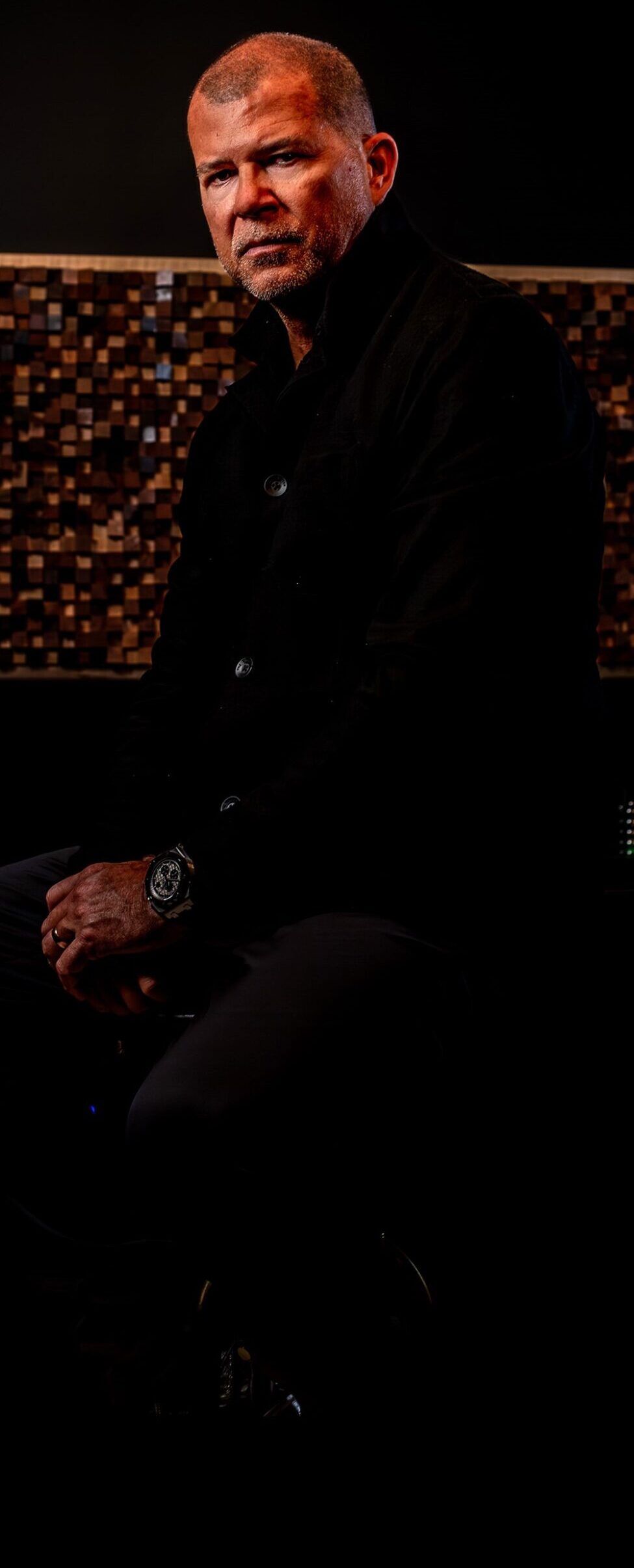Prostitution, defined under Ohio Revised Code § 2907.25, involves engaging in or offering to engage in sexual activity for compensation, such as goods, services, or money. This offense applies to those selling sexual services, but also to individuals seeking to purchase them. The broad definition of compensation means that activities not traditionally associated with prostitution could lead to legal consequences.
While some charges stem from direct law enforcement operations or surveillance, false accusations can occur due to misunderstandings, misidentifications, or personal vendettas. Innocent individuals may be falsely accused based on mistaken identity or interactions misinterpreted as solicitation.
A first offense for prostitution in Ohio is generally classified as a third-degree misdemeanor. Repeat offenses or cases involving minors may lead to harsher penalties.
Cincinnati Lawyer for Prostitution Charges in Ohio
Being convicted of prostitution in Ohio can result in jail time of up to 60 days and fines of up to $500 for a first offense. Repeat offenders or individuals involved in solicitation related to minors or trafficking may face more severe consequences.
If you are charged with prostitution, seek legal representation from a criminal defense attorney who can protect your rights and build a robust defense. Do not speak to law enforcement without your attorney present to ensure your case is handled properly from the beginning.
The Wieczorek Law Firm, LLC, led by Mark Wieczorek, as served Southern Ohio since 2008. Mark Wieczorek serves all of Ohio, including Hamilton County, Butler County, Clermont County, Brown County, Highland County, Clinton County, Preble County, Scioto County, Greene County, Montgomery County, and Warren County, and Southern Ohio.
Call Mark Wieczorek at (513) 317-5987 for a free consultation or fill out our online contact form.
- Overview of Prostitution Cases in Ohio:
- Specific Laws on Prostitution in Ohio
- Key Elements a Jury Considers in Prostitution Cases
- CHANGE Court for Prostitution Offenses
- Examples of Prostitution Charges in Ohio Based on Degree/Classification
- Defenses to Prostitution Charges in Ohio
- Common Questions About Prostitution Laws in Ohio
- Additional Resources
- Hire a Lawyer for Prostitution Charges in Hamilton County, OH
Specific Laws on Prostitution in Ohio
Compelling Prostitution (Section 2907.21)
Compelling prostitution involves coercing another person into sexual activity for hire. This can include using force, fear, or manipulation, such as exploiting a substance addiction. If the victim is under 16, it’s classified as a first-degree felony with mandatory prison time. For victims aged 16 to 18, it’s a second-degree felony. All violations include heavy fines and mandatory restitution.
Promoting Prostitution (Section 2907.22)
This offense includes managing or operating a brothel or facilitating prostitution activities. A base violation is a fourth-degree felony, but if a minor is involved or the offender has prior convictions, it escalates to a third or second-degree felony, with increased fines and possible mandatory incarceration.
Soliciting and Solicitation After a Positive HIV Test (Section 2907.24)
Soliciting involves knowingly offering or agreeing to sexual activity for hire. It is a third-degree misdemeanor, carrying up to 60 days in jail and a fine of $500. If the offender knows they are HIV-positive, the charge becomes a third-degree felony, with harsher penalties including extended prison sentences.
Loitering to Engage in Solicitation (Section 2907.241)
This offense applies to individuals who loiter in public places to solicit prostitution. Activities like stopping pedestrians or beckoning others are prohibited. It’s a third-degree misdemeanor, but repeated violations can lead to heightened penalties.
Prostitution (Section 2907.25)
Engaging in sexual activity for hire constitutes prostitution. It is generally a third-degree misdemeanor, but individuals with prior HIV-related offenses face escalated charges, including felony classifications and mandatory prison terms.
Key Elements a Jury Considers in Prostitution Cases
In Ohio, a jury considers specific elements to determine if someone is guilty of a prostitution-related offense. For example, under Section 2907.24, the prosecution must prove the defendant knowingly solicited another person for “sexual activity for hire.” This means proving both intent and awareness.
Additionally, terms like “sexual activity for hire” and “knowingly” are key. “Sexual activity for hire” is broadly defined to include any exchange of “anything of value,” not just money. A jury may also evaluate evidence such as recorded conversations, surveillance footage, or witness testimony to establish whether the defendant’s actions align with the statutory requirements.
In cases involving minors, as outlined in Section 2907.21, the jury may consider whether the accused acted with reckless disregard for the minor’s age, even if the defendant did not know the person was underage.
CHANGE Court for Prostitution Offenses
Ohio law places restrictions on probation or diversion programs for certain prostitution-related offenses. Defendants charged with felonies involving minors under Section 2907.21 or 2907.22 often face mandatory prison terms, limiting their eligibility for probation.
For individuals facing misdemeanor charges, such as those under Sections 2907.24 or 2907.241, programs like Hamilton County’s CHANGE Court may provide an alternative to traditional sentencing. CHANGE Court focuses on rehabilitation and aims to address underlying issues like addiction or trauma. However, participation in such programs is contingent on meeting specific eligibility criteria, including demonstrating a willingness to engage in treatment and comply with court supervision.
Examples of Prostitution Charges in Ohio Based on Degree/Classification
Prostitution charges in Ohio can vary significantly based on the specific circumstances and degree of the offense. Each degree or classification reflects the severity of the alleged conduct:
- Third-Degree Misdemeanor: A person standing on a street corner or public area, beckoning others to solicit sexual activity for hire, could be charged under Section 2907.241 for loitering to engage in solicitation.
- First-Degree Misdemeanor: A person knowingly permitting their premises to be used for prostitution activities may be charged under Section 2907.23(B) for allowing such acts on their property.
- Third-Degree Felony: Engaging in prostitution while knowingly HIV positive, as outlined in Section 2907.24(B), results in more severe penalties due to the potential health risks involved.
- First-Degree Felony: A parent or guardian who permits or compels a child under 16 years old to engage in sexual activity for hire can face charges under Section 2907.21(A)(5)(a), which carries some of the harshest penalties in Ohio law.
Defenses to Prostitution Charges in Ohio
Challenging Knowledge or Intent
Prostitution laws often require that the accused acted knowingly or intentionally. A defense could argue that the defendant’s actions were misunderstood or lacked the requisite intent, undermining the prosecution’s case.
Entrapment by Law Enforcement
Law enforcement must not induce a crime the defendant wouldn’t have otherwise committed. If an officer’s actions pressured the accused into soliciting, the entrapment defense could lead to dismissal.
Misidentification
Cases involving undercover operations or surveillance often hinge on identifying the correct individual. If the accused can prove they were misidentified, charges may be dropped.
Questioning Minor Involvement Evidence
In cases involving minors, prosecutors must prove the accused acted with reckless disregard for the minor’s age. A defense could challenge the sufficiency or reliability of this evidence to mitigate the charges.
Common Questions About Prostitution Laws in Ohio
- What does “sexual activity for hire” mean in Ohio law?
Under Section 2907.24, it means any explicit or implicit agreement to exchange sexual activity for anything of value, including money, gifts, or services. - Can someone be charged if no money was exchanged?
Yes. Ohio law includes any form of compensation or “anything of value” in its definition of prostitution-related activities. - What happens if the accused did not know the person was a minor?
Under Section 2907.21, knowledge of the minor’s age is not required for certain offenses. The law only requires proof of reckless disregard. - Are diversion programs available for prostitution charges?
For some misdemeanor offenses, programs like CHANGE Court may be an option. However, felonies often carry mandatory prison terms, limiting eligibility. - Can past prostitution charges affect the current case?
Yes. Under Section 2907.26(C), prior convictions for prostitution-related offenses can be admitted as evidence in a new case. - Are there mandatory penalties for prostitution charges?
Some charges, like compelling prostitution involving minors (Section 2907.21), carry mandatory prison terms and fines. - Can prostitution charges be expunged from a criminal record?
Expungement may be possible for certain misdemeanor offenses after the successful completion of a diversion program or probation, but it depends on the case. - Is solicitation the same as prostitution under Ohio law?
Solicitation (Section 2907.24) involves requesting or agreeing to sexual activity for hire, while prostitution (Section 2907.25) involves engaging in the act.
Additional Resources
- Hamilton County Change Court Overview – This document outlines the specialized CHANGE Court program in Hamilton County, designed for individuals charged with prostitution or related offenses. It explains the court’s structure, including phases of treatment and rehabilitation, eligibility criteria, and services provided, such as mental health support and job training.
- Hamilton County Change Court Official Page – This source is the official webpage for Hamilton County’s CHANGE Court program. It provides an overview of the court’s purpose, eligibility requirements, and the resources available to participants, including addiction treatment and community reintegration services.
- DOJ Criminal Resource Manual on the Mann Act – This source provides an overview of the Mann Act under the DOJ Criminal Resource Manual. It explains federal statutes addressing the transportation of individuals for prostitution or illegal sexual activities, including enhanced penalties for offenses involving minors and related case law.
Hire a Lawyer for Prostitution Charges in Hamilton County, OH
If you or someone you know is facing accusations or charges of prostitution in Cincinnati, seek legal representation without delay. Speaking to law enforcement without a lawyer can significantly increase the risk of wrongful conviction. To protect your rights and ensure a fair process, consult with an experienced criminal defense attorney immediately.
The Wieczorek Law Firm, LLC represents clients in Southern Ohio, including the cities of Cincinnati, Columbus, Akron, Dayton, Toledo and South Point.
Mark Wieczorek can be reached at (513) 317-5987 or by filling out an online contact form.

